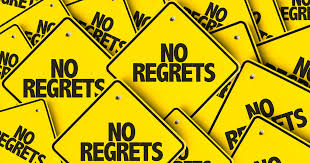Instead of trying to convince those who don’t want kids to become parents, we should be
grateful that more people are questioning their desire or ability to take on the journey of
parenthood. Those who are not sure whether they want children are proceeding with caution.
Child-free by choice people, like me, have slammed on the brakes altogether.
I think society will be better for it.
As a 27-year-old childfree woman, family, friends and even strangers have interrogated me as to why I’ve chosen not to parent. These questions are often disguised as wanting to understand your position but usually precede a statement aimed at changing your mind. As if being posed with the question, “What if you regret not having kids when you’re 60?” will unravel years of research, therapy, soul searching and whatever other factors led to your decision to not have children.
I for one would rather wake up 30 years from now and regret not having children than to have children and be right about my gut feeling that I will regret that decision. Why? If I regret not having children, who would that harm other than myself? Not my nonexistent child, that's for sure.
Some might say the fear of regretting parenthood is ridiculous as they believe no parent could regret their choice, but it does happen. There’s a whole subreddit dedicated to these parents.
Does it happen a lot compared to those unregretful? No, but the fact that it happens at all is alarming. It’s hard to get an exact estimate because research studies are few and far between. However, according to this 2023 study, between 5% and 14% of parents in developing countries ages 19 to 57 regret their decision to have children and say they would opt out of parenthood if given the choice again.
The consequences of realizing too little too late that you don’t want to or can’t fulfill your duties as a parent are evident across generations. So why are the media and older generations painting feelings of undesire or inability to parent as being isolated to the millennial and Generation Z population?
Saying I don’t want to be a regretful parent is not to shame parents who voice their regret. Oftentimes, they attribute this regret to financial instability, mental health struggles, inability to fulfill their life goals and other challenges — all of which connect to my reasons for being childfree and all of which do not make them bad parents.
I empathize with those who enter parenthood with every intention of being satisfied with the decision and appreciate those who push aside their regret to be loving and present parents. Their voices normalize transparency around parental hardships and help slowly diminish the “everyone should be parenting” mindset that makes people enter parenthood unprepared or begrudgingly in the first place.
There is a shift happening in this regard: A growing number of people opting out of parenthood, or at least being more intentional about when they become a parent. The shift could be a sign that people are placing more importance on weighing the mental, physical, social and financial demands that come with having children — and making a decision accordingly.
Adults are taking more time to have children, with 27 being the average age of a first-time mother. The number of adults declaring they don’t intend to have children has grown. According to a Pew Research Center survey, the share of U.S. adults younger than 50 without children who say they are unlikely to ever have kids rose from 37% to 47% between 2018 and 2023.
As someone who spends a lot of her time on childfree Facebook groups, this is no surprise. Parenthood is so clearly less appealing today than in the past. Between concerns over climate change, lack of affordable housing and child care, nonexistent work-life balance and more people attending therapy where they inevitably unpack generational trauma, it was only a matter of time before more people started questioning if they see children in their future.
More people viewing parenthood as an option — one that we should enter into with utmost care and desire — is a good thing. It’s one pathway to ensuring more people enter parenthood with more confidence and less likely to be vulnerable to regret.
Even if you refuse to see a silver lining in more people delaying, opting out of or being unsure about parenthood, you should at least see this as a call to action to examine why so many people are indecisive or declaring child-free status. Not to shame or change our minds but to see us as people who can provide insight into what we as a society can do to make having children more appealing and stability as a parent more attainable.
Raven Wells is a Baltimore-based communications professional and writer with a penchant for advocacy. Having chosen to be childfree in her early 20s, she hopes to eliminate harmful narratives around those who have chosen to not have children and improve the lives of those who do have children or want them in the future. In her free time, she enjoys painting, listening to audiobooks, going to the movies and walking local trails. You can contact Raven Wells on Instagram @thatsoray97 or rwellscommunications@gmail.com.
#NoBibsBurpsBottles would like to thank Raven for her
personal contribution to our blog. Please leave comments and reactions below.




Comments